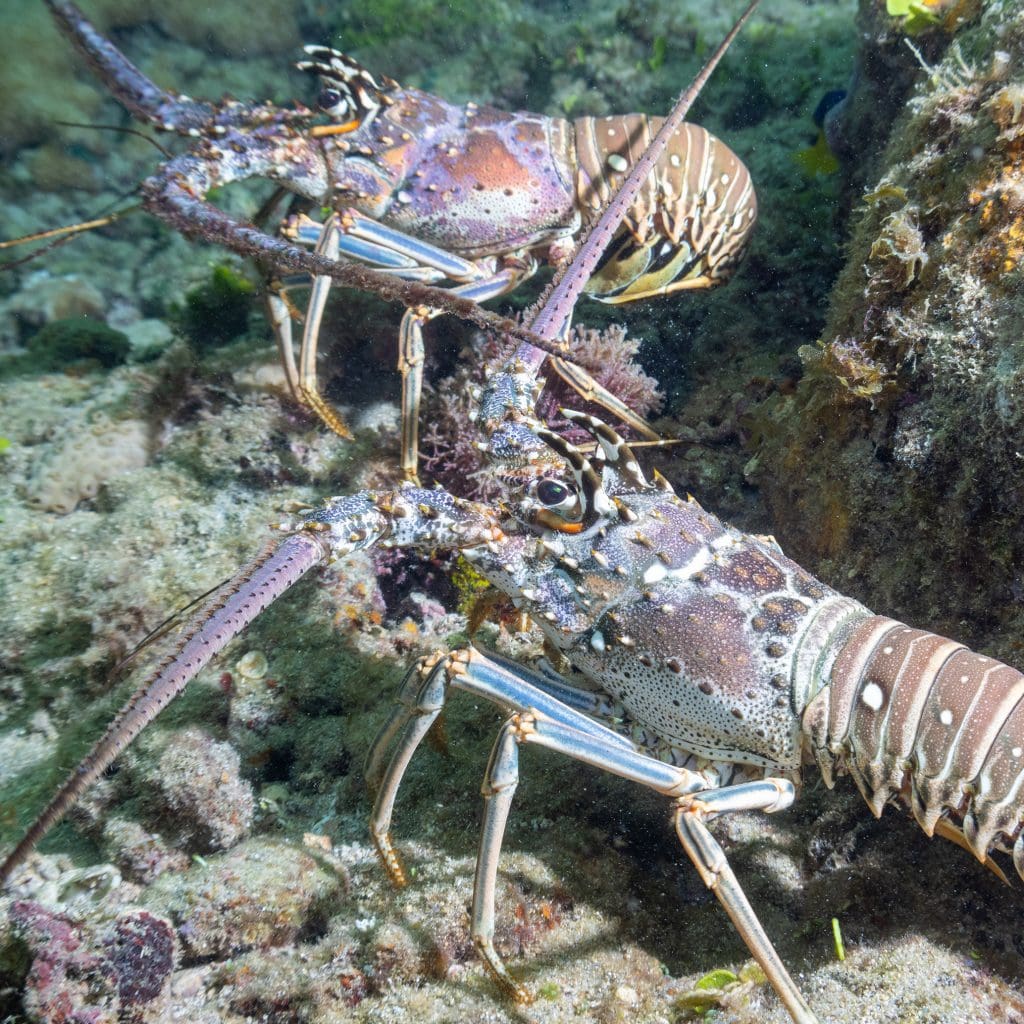The spiny lobster (Panulirus argus) plays a crucial role in maintaining the health and balance of Florida’s coral reef ecosystems. These lobsters are considered keystone species, meaning their presence and activities have a disproportionately large impact on their environment. By preying on various invertebrates, such as sea urchins and small crustaceans, spiny lobsters help control the populations of these species, preventing them from overgrazing on the reef and causing damage to the coral structures.
One of the fascinating behaviors of spiny lobsters is their use of chemical signals to communicate and aggregate. They release urine that contains pheromones, which can deter predators like snails and fireworms that feed on live coral. This defensive mechanism helps protect the coral from these harmful predators, especially in areas where nursery-grown corals are planted as part of restoration efforts. By keeping these coral predators at bay, spiny lobsters contribute to the survival and growth of young corals, which are vital for reef regeneration.
Spiny lobsters also play a role in the broader food web of the coral reef ecosystem. They are preyed upon by a variety of larger marine animals, including groupers, snappers, and octopuses. This predation helps regulate the lobster population, ensuring that their numbers remain balanced and do not overwhelm the reef ecosystem. The interactions between spiny lobsters and their predators create a dynamic balance that supports the overall health and resilience of the reef.
In addition to their direct interactions with other species, spiny lobsters contribute to the structural complexity of the reef. Their burrowing and sheltering activities create habitats for other marine organisms, promoting biodiversity. The crevices and holes they inhabit provide shelter for smaller fish and invertebrates, enhancing the reef’s ability to support a wide range of species. This habitat creation is essential for maintaining the ecological diversity that makes coral reefs so vibrant and productive.
Overall, the spiny lobster is an integral part of Florida’s coral reef ecosystems. Through their predatory behaviors, chemical defenses, and role in the food web, they help maintain the balance and health of the reef. Their activities support coral growth, protect against predators, and create habitats for other marine life, highlighting their importance in these delicate and vital ecosystems. By understanding and protecting spiny lobsters, we can better preserve the intricate and interconnected web of life that thrives in Florida’s coral reefs.
Photo credit: Spiny Lobster. © Copyright 2024 Christopher Duncan, All Rights Reserved Worldwide. Some textual content created through generative AI.


